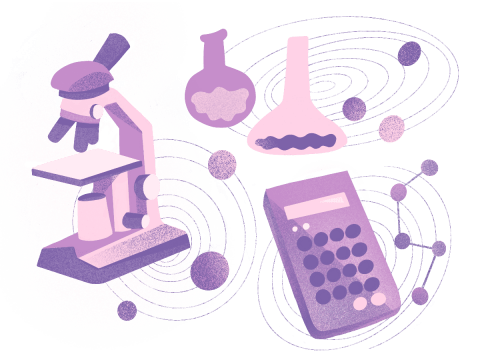
Let’s imagine that this last question on your science final is the only thing between you and summer vacation: Why is science important? You are given three choices including the option to explain your reasoning — what answer would you choose?
First option: there are three Nobel prizes dedicated to science, duh. Second option: the word “science” has been sprawled in colourful print across several textbooks since grade school. Third option: provide a short answer below.
Now, while the first two options aren’t necessarily wrong, if I were answering this question, I would choose the third option. And not just because I want to get the question right but because I truly believe that science is an everyday phenomenon that cannot be explained with multiple-choice answers.
What we often fail to grasp — perhaps because of the division of science subjects in education — is how science is at once both a broad spectrum of different fields and uniquely individual disciplines that are incredibly detailed and constantly developing.
There’s your so-called standard sciences — like physics, chemistry and biology — but there are also branches like physiology, biochemistry and environmental science. Don’t forget emerging fields like machine learning in the world of computer science and the multitudes of interdisciplinary areas like bioinformatics.
Of course, for science and arts students alike, there are science lectures and labs, but beyond those structured spaces, science still exists. We encounter science in every part and moment of our lives.
From your first breath to your last exhale, your body’s cells are dividing — forming tissues, forming organs, forming you — and interacting with other molecules in an incredibly complex and fascinating manner. The process of oxygen delivery and storage is a delicate orchestra between hemoglobin and myoglobin. It involves the specific interaction of 2,3-bisphospho-D-glycerate, CO2 , bicarbonate, protons, the enzyme carbonic anhydrase and more.
Stepping outside of your body, let’s take a look at the science involved in driving. While we may not use the scientific terminology, pressing the accelerator is a force changing the velocity of the car. We wear seatbelts to distribute the force over the time of an impact. And what about friction? It’s what gives the car traction on the road, a prevalent thought during our Saskatchewan winters.
These examples only scratch the surface of our world: our phones, the internet, the cultivation of the food we eat, the creation of vaccines and discoveries in medical treatments are all powered by and driven by science, technology, engineering and math.
I believe the real power of science lies in its ability to foster a critical mindset. Science is a fluid process. It’s about observing the world around you, forming questions about it, developing predictions, testing them, analyzing evidence and drawing conclusions based on this evidence.
Science calls upon other scientists to test the validity of a claim before accepting it as truth. Science is constantly changing, and this framework that binds it together across many disciplines is an open process that welcomes criticism and change.
But this mindset is not limited to science or scientists. In a world of fake news and with the upcoming federal election, having the ability to form evidence-based opinions, analyze the world around us and challenge claims is important.
Ultimately, science is more than a subject and more than a class. It’s more than a degree and your career. To me, science is a worldview powered by curiosity, learning and the desire for better. With this scientific mindset and the above examples as inspirations, what can science do? It can power global movements like the student protests that occurred on March 15 in over 100 countries demanding climate-change action.
So if you had the chance to answer the question of why science is important again, what would you say? I might say that science can be the source of some good humour. Let me try one. What do gases, solids and liquids all have in common?
They matter. As does science.
So the real science lesson here is that science doesn’t start and end with your lectures but continues on in the world around you. Welcome to science class.
—
Vaidehee Lanke
Graphic: Jaymie Stachyruk / Graphics Editor